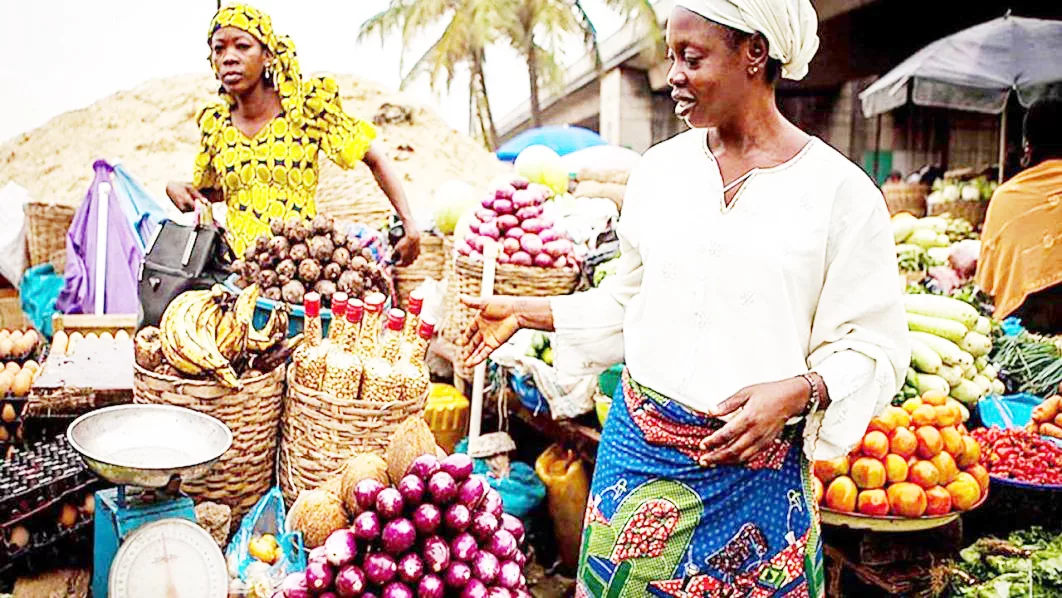The phenomenon of galloping food inflation has emerged as a significant concern in Nigeria, particularly for individuals with static incomes. Galloping food inflation refers to the rapid and uncontrolled increase in the prices of food items, which disproportionately affects individuals with fixed wages, salaries, or pensions.
According to the National Bureau of Statistics (NBS), the food inflation rate in February 2024 quickened to 37.92 per cent.
Galloping food inflation erodes the purchasing power of individuals with static incomes, making it increasingly difficult for them to afford basic food items. As the prices of staple foods such as rice, maize, and cooking oil skyrocket, individuals find themselves grappling with the dilemma of allocating a larger portion of their limited incomes to meet essential dietary needs. This leads to a decline in the quantity and quality of food consumed, exacerbating malnutrition and food insecurity among vulnerable populations.
For individuals with static incomes, galloping food inflation imposes a severe strain on household budgets, as a larger proportion of their income is diverted towards food expenditures. This leaves less disposable income available for other essential expenses, such as housing, healthcare, and education, forcing individuals to make difficult trade-offs and sacrifices. Moreover, the unpredictable nature of food prices exacerbates budgetary uncertainty and financial stress, heightening feelings of economic insecurity and instability.
Galloping food inflation has dire consequences for nutrition and health outcomes, particularly among low-income households. As the affordability of nutritious foods diminishes, individuals may resort to cheaper, less nutritious alternatives, leading to imbalanced diets and increased risk of malnutrition and diet-related diseases. Moreover, the stress and anxiety associated with food insecurity can have detrimental effects on mental health, exacerbating feelings of depression, anxiety, and psychological distress among affected individuals.
The impact of galloping food inflation on static income earners exacerbates existing economic disparities and inequalities within Nigerian society. Low-income households, which are disproportionately reliant on food expenditures for their livelihoods, bear the brunt of food price hikes, further widening the gap between the rich and the poor. Moreover, marginalised populations, including women, children, and rural communities, are disproportionately affected by food insecurity, perpetuating cycles of poverty and socio-economic marginalisation.
Galloping food inflation can fuel social unrest and political instability, as individuals with static incomes express frustration and discontent with rising food prices and diminished living standards. Protests, demonstrations, and civil unrest may erupt in response to perceived injustices and inequities, posing challenges to social cohesion and political stability.
Moreover, food insecurity and economic hardship can undermine trust in government institutions and exacerbate social tensions, posing significant challenges to governance and social stability in Nigeria.
Galloping food inflation poses profound challenges for individuals with static incomes in Nigeria, exacerbating food insecurity, economic disparities, and social unrest. Addressing the root causes of food inflation, implementing targeted social protection measures, and promoting inclusive economic growth are essential steps towards mitigating the adverse effects of food inflation on static income earners and fostering a more equitable and resilient society.
It leaves many in wonderment when and how Nigeria will escape the current situation. A manufacturer, and director at Cutix Plc., Mrs. Ijeoma Ezeasor, told NATIONAL ECONOMY that apart from the pervasive issue of insecurity in Nigeria, food insecurity can be tackled with some change in policies by the federal government.
She said the advent of COVID-19 created some problems relating to supply chain that is still affecting manufacturers. She noted that foreign exchange instability, especially at the ports, perpetrated by Nigeria Customs Service puts manufacturers in a bad position for competition.
She stressed that the problem is dire for manufacturers especially in the food industry. Ezeasor said there are some inputs in food manufacture that are imported. The availability of forex affects the cost of those inputs, and by extension, the cost of production and the final product. She stressed that the costs of all those imported inputs force manufacturers to pass the costs to final consumers.
“On the other hand, final consumers are finding it difficult to purchase the final products, which leave much food on the ware houses of food manufacturers,” she said.
Ezeasor added that the increased prices of diesel, coupled with bad roads also add to food inflation in the country. She added that there are hundreds of non-state actors that liter the highways collecting funds from freight transporters illicitly. She said as long as these conditions remain, the costs of food items will continue to rise every day.
An economist, and economic affairs analyst in Lagos, Samuel Atama, also noted that the rampant insecurity in the country will leave the country more and more in need of food as the country is no longer producing enough food for consumption.
“If we should tell ourselves the truth, Nigeria is no longer producing enough to feed itself. Farmers in food baskets of the nation are mostly in displaced people’s centers of have moved to cities in fear of their lives. There is no way we can meet our food needs when farmers are away from their farms. Things will continue to worsen until we can get our priorities right. Nigeria needs adequate security,” he said.
A lecturer at Nnamdi Azikiwe University, Dr. Felix Echekoba, on his part, noted that by the very fact that the prices of food continues to rise, it indicated that there is not enough being produced in the country. Otherwise, it is a matter of logistics or transportation.
Meanwhile, tens of millions of Nigerians continue to grapple with galloping inflation but static incomes. The implication of this, according to a dean at Adeleke University, Professor Tayo Bello, is that Nigerians are getting poorer by the day.





